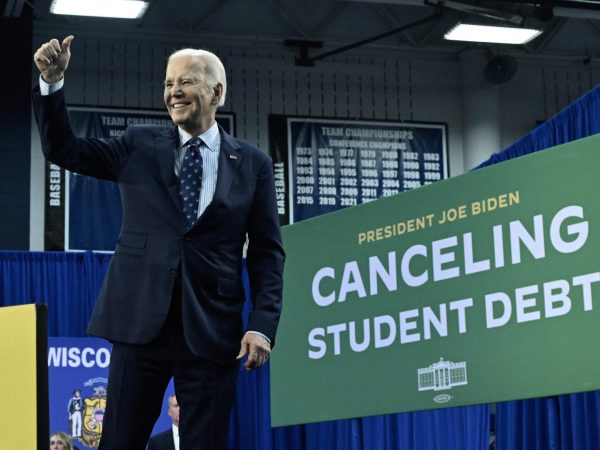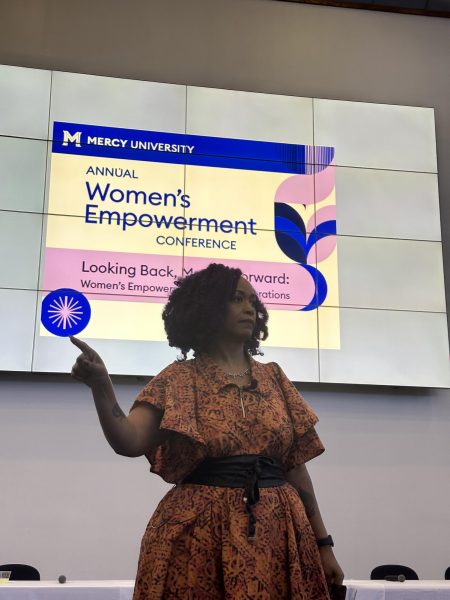$4.9 Million Grant Awarded to Mercy College to Educate More Hispanic and Low Income Students
Mercy College was awarded a $4.9 Million Grant from the U.S. Department of Education to help educate more Hispanic and low-income students in science, technology, engineering, and math.
The grant, expected to be $4,928,344, funds a five-year project called STEM Ready. The project director is Dr. Stuart Sidle, Dean of the School of Social and Behavioral Sciences at Mercy College.
STEM Ready is going to change the curriculum of STEM in a way that will focus on three new activity areas.
“We’re moving away from students sitting and listening,” says Dr. Renée Haskew-Layton, Assistant Professor and Program Director of Biology at Mercy. The new curriculum will be active learning that will engage the students more.
One of the new activities will be career readiness. It will involve working with biotech companies and asking them what skills do students need to be offered jobs at certain companies. Based on the answers of the biotech companies, modules will be created. Students will be able to put these modules as micro-credentials on their resumes because the companies will want to see that.
With career readiness, professors will be able to get students ready for their careers from the beginning. “A lot of Hispanic students start in STEM but then switch out to another major,” explains Layton. “We’re trying to support them from freshman and sophomore year with tutoring and just help with studies.”
Hispanics in full-time undergraduate at Mercy College make up 41.3 percent of the students, according to College Factual.
The Educational Advisory Board says that 37 percent of Hispanic students switch out of STEM majors to another major before earning their degree. It’s suggested that Hispanics and other minorities switch out of STEM because many come from low-income families which might cause them to not have access to the academic resources that would help them complete their degrees.
Another speculation is that discrimination and bias in the STEM field could be another reason why Hispanics and other minorities leave the field.
“It’s so important to bring more diversity into STEM,” says Layton. “…More women are getting into STEM but it’s still important to have diversity.”
The Refinitv global study says that when diverse groups attempt to solve a problem, they offer more different ideas, opinions and they perform the best in problem-solving situations. Whereas a group that isn’t diverse delays different perspectives and new ideas.
Metacognition is also one of the new activities. Students will learn critical thinking skills that will allow them to plan, monitor, and reflect on the material they learned and their performance in learning. Metacognition will also be taught to faculty so they can teach it to the students.
On the Mercy College News site, Sidle says, “These skills will help us all become more effective educators and providers of the support services our students need.”
The last activity focuses on improving the rate of transfer Hispanic and low-income students that attend Westchester Community College (WCC) to transfer to Mercy College, improve student outcomes and improve the graduation rate of the students.
WCC students will gain the knowledge and skills to get employment by being able to participate in what STEM Ready has to offer such as career readiness and being able to attend summer research groups. “Both groups of students will be able to participate and it will help them get jobs,” said Layton.
According to ComputerScience.org, currently in the United States, the STEM field is dominated by white individuals by 69 percent and their median salary is $71,000. Whereas Hispanic individuals make up 7 percent and their median salary is $60,760. Excluding healthcare, men dominate the rest of the jobs in the STEM field.
The grant will also be funding equipment such as the new Macbook Pros that will have high-level software for molecular modeling in the chemistry labs.
The grant will also include model transfer agreements, it will support Mercy’s role in handling administrative details, and articulation agreements for transferring completed credits earned at another college prior to transferring to Mercy.
“It’s going to strengthen Mercy,” says Layton. “Mercy changes the curriculum to offer students more learning.”

Noelle Ramirez is a Junior at Mercy College perusing Journalism to become a Social Media Manager. Noelle enjoys listening to music, especially Bad Bunny,...













